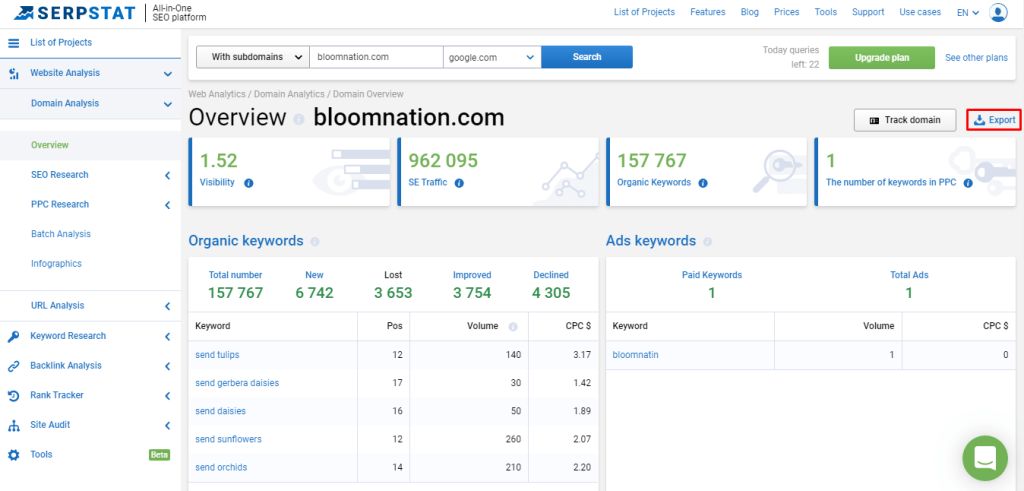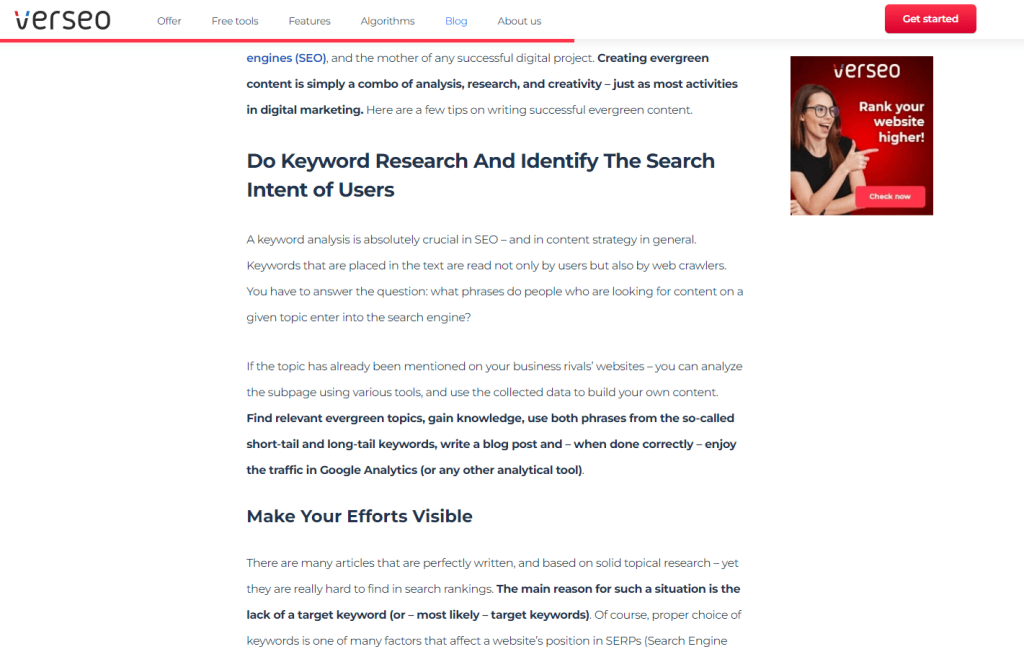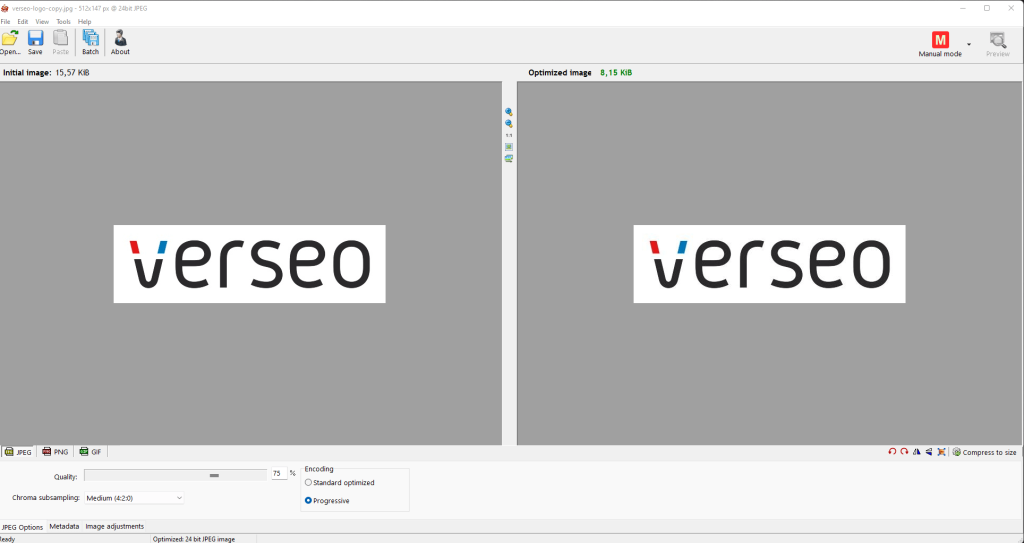An e-commerce store thrives online, therefore it must be high in the search engine results to capture the users’ attention. Improving e-commerce website ranking on Google is not easy, just like the whole SEO process. The increasing competition forces e-commerce owners to spend more time, effort, and money on SEO. The question is: how to effectively beat the competition and improve the e-commerce website ranking? Here are some SEO tips from Verseo — an experienced digital marketing agency.
- 1. Keyword research — check your competition
- 2. Product descriptions — aim at uniqueness
- 3. Headings — keep them structured
- 4. Dofollow and nofollow links — know the difference
- 5. Corporate blog — promote your brand
- 6. Optimized images — speed up the loading time
- 7. SEO results — give them some time
- 8. Algorithm updates — follow the changes
1. Keyword research — check your competition
Intuition is important in SEO, but it can never win over research and data analysis. Therefore, always check what keywords your closest competition ranks for and what phrases are entered by customers who are looking for a similar product. Various tools — free: e.g. Google Keyword Planner and paid: Ahrefs, Serpstat, Senuto, SEOSurfer, Semstorm, and many others — can help you with that.

2. Product descriptions — aim at uniqueness
Google does not like duplicate content. Therefore, focus on writing unique product descriptions. It also applies to product subpages. Content duplication is usually a problem when you use product descriptions received from the supplier, and the same text appears all over the Internet in dozens of other stores. It is worth investing in unique product descriptions — this way you not only stand out in a crowd of competitors but also gain an advantage in the search engine by adding significant keywords in your descriptions.
3. Headings — keep them structured
Headings play two very important roles. They break up blocks of text, making content more pleasing to the eye and easier for the reader to follow. The same concept applies to search engine crawlers, which use headings to gather context on what is written. Therefore, using keywords in the headings is crucial from the SEO point of view. Web crawlers analyze all headers with a particular focus on H1, H2, and H3 tags.

4. Dofollow and nofollow links — know the difference
If your site has a lot of links that point from your site to another. For example, to product review blogs presenting your store’s offer. There is a rule to use the nofollow attribute. This way, you do not risk lowering the value of your domain. Especially avoid dofollow links to profiles or fan pages on social networks — it is pointless. However, it does not mean that dofollow links are bad, quite the opposite — they are great as long as you link to authoritative websites.
5. Corporate blog — promote your brand
A corporate blog is a perfect space to share valuable content — business facts, industry news, and specialist articles. It is also an ideal place to brag about your company’s achievements! This way, you build an image of an expert and strengthen the credibility of your brand. New posts will also be appreciated by the Google algorithm — after all, regular publications within a given subject area, full of specific keywords, increase the topical authority of your website. If they are substantive and well-written, the process of acquiring valuable links is much easier.

6. Optimized images — speed up the loading time
In e-commerce, it is difficult to present the shop’s offer without images. Remember, however, that images must be optimized for speed because they may influence the page’s loading time, which is an important ranking factor. Even simply reducing the size of photos — without a noticeable loss of quality — can speed up the website’s loading time significantly.

7. SEO results — give them some time
Don’t expect immediate results. When properly executed, SEO is a very effective method of building your brand’s online presence on the web. The first effects can be noticed only after a few weeks, however, the full potential can be seen even after many months. The SEO process is a marathon. It is long, exhausting, but also rewarding. Effects take more time, but the results are more stable. Moreover, SEO is an ongoing process. A high rank achieved once, without any additional effort, will certainly drop. Remember your competition also works hard to rank higher than you!

8. Algorithm updates — follow the changes
Finally, the most important thing — never stop improving. Google algorithms evolve every day and get better at analyzing websites’ content. Therefore, search engine optimization requires constant monitoring and updating. Keep up with algorithm changes and industry best practices — it pays off.


